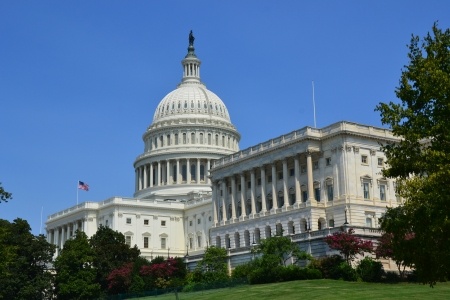
Washington D.C. – December 10, 2019 – Over the past 15 years, over 40% of the military bases that previously had banks no longer do. The Association of Military Banks of America (AMBA) attributes the departures to the Department of Defense’s unwillingness to treat banks and credit unions equally on military installations. This year, the Senate, led by Armed Services Committee Chairman James Inhofe, sought to change that by introducing legislation that would require DoD to treat banks and credit unions equally. Unfortunately, in the face of withering opposition from the credit unions, the Senate language was cut from the final 2020 NDAA bill released last night.
Although AMBA is disappointed in this most recent setback, Major General (Ret.) Steve Lepper, AMBA’s President & CEO, thanked Senator Inhofe and the many others whose efforts sought to keep banks on military installations:
- For the past four years, Senator Inhofe has been an unwavering supporter of the proposition that DoD’s “one bank-one credit union” policy truly does provide our military families the best financial services options to help them deal with their unique financial challenges. That policy is rapidly becoming a “one credit union monopoly” on our military bases. That’s unfortunate, because the work banks and credit unions do together to serve their military communities really does help our troops and their families understand their finances, prepare for the future, and defend against the predatory financial entities that still target our military.
- Had the Senate’s language been accepted by the 2020 NDAA Conference, it would have finally required DoD to treat banks and credit unions equally. It stood the greatest chance of keeping banks on military installations in an environment where rising lease and associated costs – costs not paid by credit unions – will force more of them to leave. We’re disappointed that Congress, which says it promotes military financial readiness, has taken this action that actually leaves our military communities more financially vulnerable. Yesterday, when faced with a choice between the welfare of our military families and the protection of credit union profits, Congress regrettably chose the latter.
Unlike many private entities operating on military installations, banks and credit unions are not government contractors. This means they are not compensated by the government for their services. While credit unions at least do not have to pay anything for the government facilities in which they operate — a benefit that at least partially offsets their costs — banks must pay to operate on base. AMBA, which at DoD’s suggestion has been working for four years to get Congress to extend the same benefit to banks, has seen every effort blocked by the credit unions.
As rents continue to rise with no relief in sight, more banks will leave military installations. What that means is that more military families, who can’t get the banking services they need on base, will seek financial services off-base. “In a time when Congress is focused on protecting our troops from predatory financial entities,” Lepper says, “it makes no sense that we continue to push our troops into their arms.”